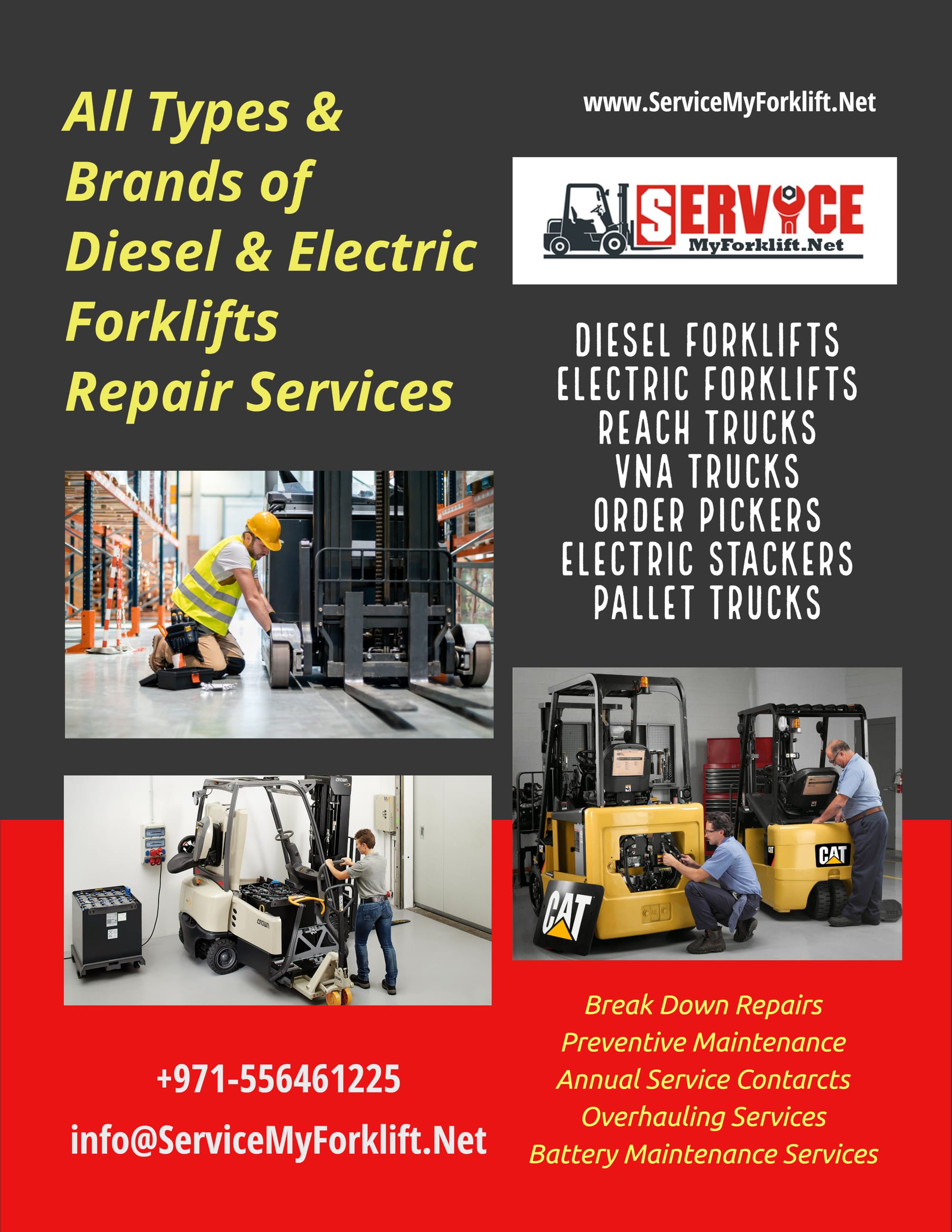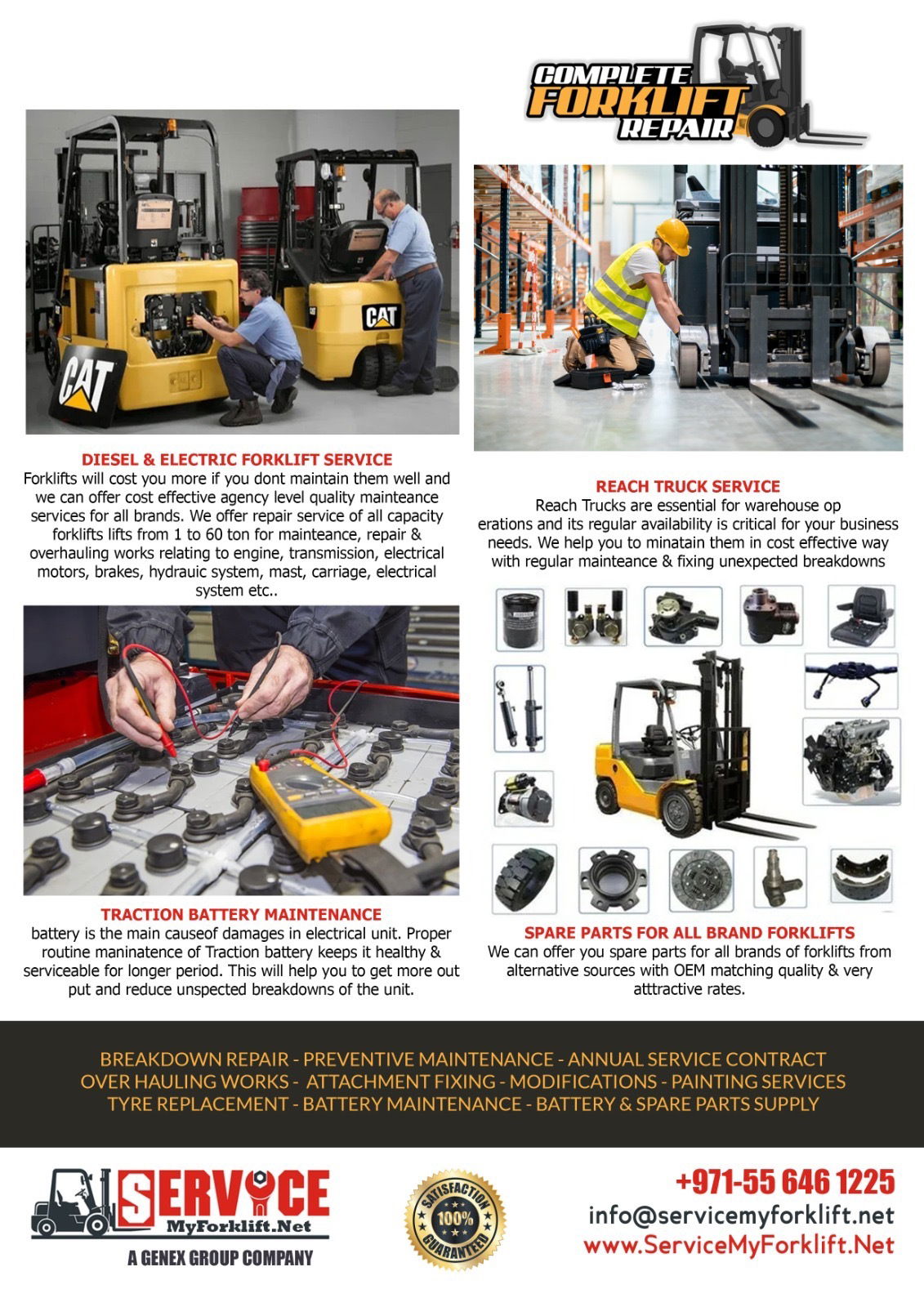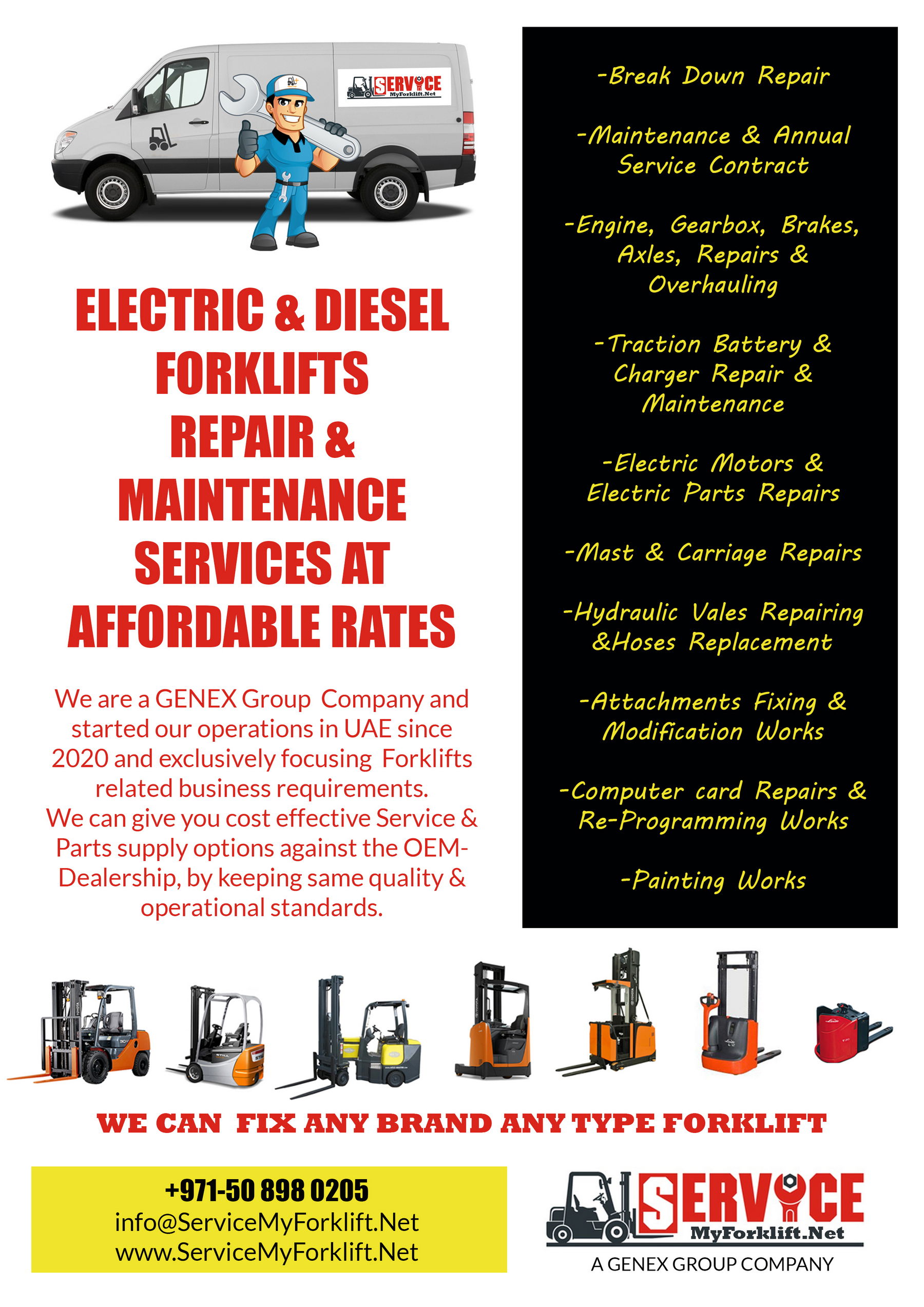Forklift Repair & Maintenance Services in U.A.E
We offer Cost Effective Solutions For Your Forklift Service Needs
The Company is providing Repair & Maintenance services for Material Handling Equipments like, Diesel, LPG & Electric Forklifts, Reach Trucks, Electric Stackers, VNA trucks, 4x4 All Terrain Forklifts, Order Pickers, Pallet Trucks etc...from renowned brands like Toyota, Caterpillar, Hyster, Komatsu, Linde, BT, Still, Crown Heli, Nissan, Yale etc.
Key Aspects of Our Services
Forklift repair involves the maintenance, troubleshooting, and fixing of issues that may arise in forklifts. Forklifts are industrial vehicles used for lifting, moving, and transporting heavy loads in warehouses, manufacturing facilities, and other settings. Just like any other machinery, forklifts can experience wear and tear, malfunctions, or breakdowns over time. Forklift repair services are designed to address these issues and ensure that the equipment operates safely and efficiently. Key aspects of forklift repair include:
Diagnosis: Identifying and understanding the nature of the problem is the first step in forklift repair. This may involve inspecting the forklift, checking for error codes, and consulting with operators to gather information about the issue.
Parts Replacement: Worn-out or damaged parts are replaced to restore the forklift’s functionality. Common replacement parts include hydraulic components, brakes, tires, forks, and electrical components.
Hydraulic System Repair: Forklifts rely heavily on hydraulic systems for lifting and lowering loads. Repairing hydraulic components, such as cylinders and hoses, is a common aspect of forklift maintenance.
Electrical System Repair: Forklifts often have complex electrical systems, including wiring, switches, sensors, and control panels. Repairing electrical components is essential for addressing issues related to the forklift’s operation and safety features.
Engine Maintenance: For forklifts powered by internal combustion engines (gasoline, diesel, propane), engine maintenance is crucial. This includes tasks such as oil changes, filter replacements, and addressing issues related to fuel delivery and ignition.
Transmission Repair: The transmission is responsible for controlling the forklift’s movement. Repairing transmission components ensures smooth operation and responsiveness.
Brake System Maintenance: Forklifts are equipped with braking systems similar to those in automobiles. Regular inspection and repair of brakes are essential for safety.
Preventive Maintenance: Beyond addressing specific issues, forklift repair may include preventive maintenance to identify and address potential problems before they lead to breakdowns.
Operator Training: Ensuring that forklift operators are trained to use the equipment correctly and follow safety guidelines is a crucial part of overall forklift maintenance.
Proper and timely forklift repair helps extend the lifespan of the equipment, reduces downtime, and enhances workplace safety. Many companies offer professional forklift repair services, and some businesses also have in-house maintenance teams to handle routine and emergency repairs. Regular maintenance schedules and adherence to manufacturer guidelines are essential for optimal forklift performance.
Brochure
Contact Us
- supercare machinery maintenance





